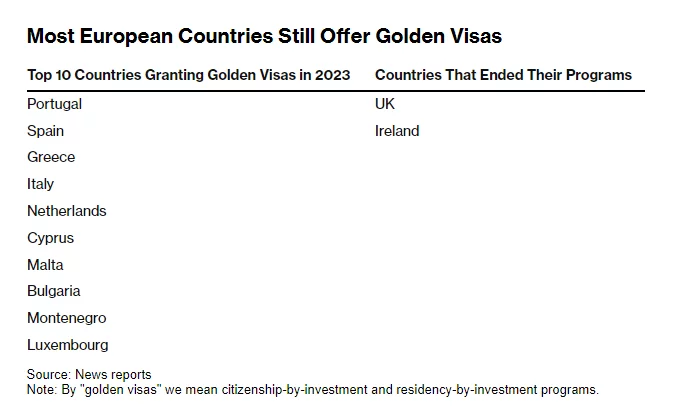
There are more and more calls to opt out of Golden Visa programs, and they're still thriving. Why?
European “citizenship/residence by investment” programs continue to thrive despite demands to end them from across the political spectrum. Why do “golden visas” remain popular despite criticism and calls for their abolition?
“Golden visas” provide an opportunity for wealthy foreigners to obtain residency or citizenship in countries by investing in local real estate or financial assets. Between 2011 and 2019, more than 132,000 people gained citizenship through “golden visa” programs. Demand has recently reached record levels in Greece, Portugal, Italy, and Spain.
Since these programs are associated with rising real estate prices and insufficient regulation, MEPs have long called for their termination. Some countries have indeed canceled them, such as Ireland and the UK; others are tightening the conditions for participation: from August 1, Greece increased the investment threshold from €250 thousand to €500 thousand, and Spain is considering increasing the minimum investment amount to 1 million euros or a complete abolition of the program.
Portugal in July canceled the possibility of obtaining a residence permit for investment in real estate but left the possibility of investing at least €500 thousand in local companies or funds not related to real estate. And some countries, like the Netherlands and Montenegro, continue to accept gold visa applications despite having announced the termination of their programs.

In any case, the closure and changes in the “golden visa” programs caused the opposite of the desired effect: interest in them has only increased. The fact that they have a significant impact on the economies of European countries also plays a role. Over the last ten years, countries granting “golden visas” have received about 25 billion euros in investments. Portugal, for example, has received €6.8 billion, making it one of the biggest beneficiaries.
“Governments want to show that they are taking a tough stance on golden visas, but these visas are important for struggling economies, so many EU countries end up taking a rather ambivalent stance,” immigration consultants say.
It should also be remembered that some countries offer alternatives. For example, “digital nomad” visas are becoming popular among remote workers. And business founders can also apply for special investor visas, which entitle them to temporary and permanent residence.
Author
I am responsible for editorial work. I write expert interviews and guides.






















